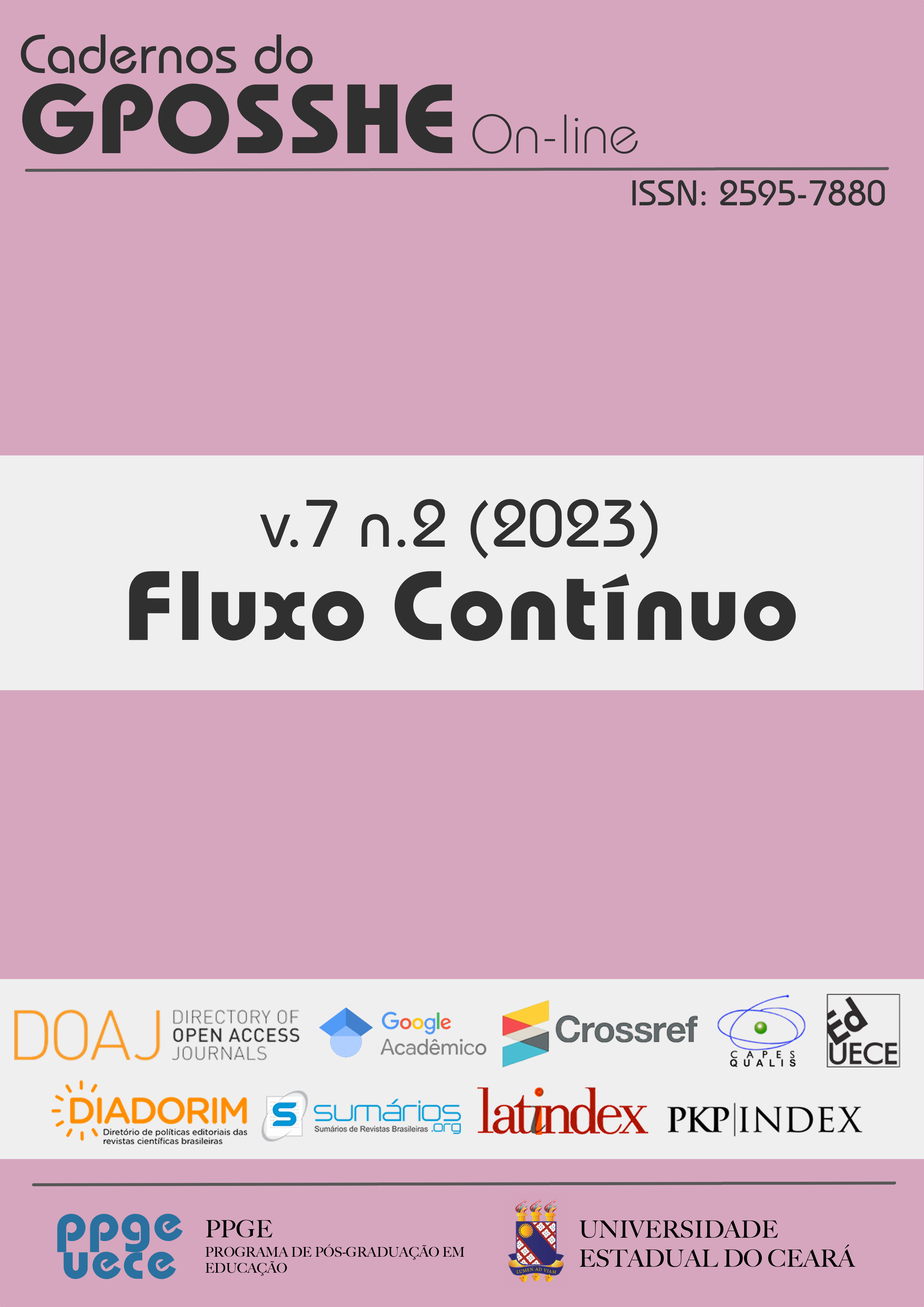Face-to-face to online:
methodologies in distance education during and after the pandemic
DOI:
https://doi.org/10.33241/cadernosdogposshe.v7i2.11786Keywords:
Pandemic; Methodology; Distance learning.Abstract
With the advent of the global pandemic, education has faced significant challenges, leading educational institutions to adapt quickly to ensure the continuity of the educational process. In this context, the transition from face-to-face to online teaching has become a reality for millions of students and teachers around the world. This article examines the methodological practices adopted in Distance Education (DE) during and after the pandemic, with the aim of analyzing how educational institutions have adapted to the abrupt changes and the impacts of these changes on the quality of education today. First, the challenges faced by educators when migrating from face-to-face to online teaching will be addressed, including issues related to technological infrastructure, accessibility and socio-economic inequalities. Next, the different methodological approaches used to make distance learning more efficient and effective will be presented. The methodology used in the study is based on bibliographical research.
Metrics
References
ARROYO, Miguel G. Outros sujeitos, Outras pedagogias. Petrópolis-RJ: Vozes, 2014.
BRASIL. Leis e Diretrizes e Bases da Educação Nacional. Decreto n. 5.622, de 19 de dezembro de 2005. Regulamenta o art. 80 da Lei 9.394/96, 20 dez. 1996. Estabelece as diretrizes e bases da educação nacional. Diário Oficial da União, Brasília, ano 134, n. 248, p. 27833-27841.
BERBEL, Neusi Aparecida Navas. As metodologias ativas e a promoção da autonomia de estudantes. Semina: Ciências Sociais e Humanas, Londrina, v. 32, n. 1, p. 25-40, jan/jun 2011.
CONFORTO, Debora; VIEIRA, M. C. Smartphone na Escola: Da Discussão Disciplinar Para a Pedagógica. Latin American Journal of Computing, v. II, p. 43-54, 2015.
FREIRE, Paulo. Educação e mudança. São Paulo: Paz e Terra, 2001.
HOOKS, Bell. Ensinando a transgredir: Educação como prática da liberdade. São Paulo: WMF Martins Fontes, 2013.
JUNIOR, V. B. A., MONTEIRO, J. C. S. Educação e covid-19: as tecnologias digitais mediando a aprendizagem em tempos de pandemia. ISSN 2675-1291| DOI: http://dx.doi.org/10.46375/encantar.v2.0011 Revista Encantar - Educação, Cultura e Sociedade - Bom Jesus da Lapa, v. 2, p. 01-15, jan./dez. 2020.
LANDIM, C. M. das M. P. F. Educação a distância: algumas considerações. Rio de Janeiro: Edição do Autor, 1997.
MARIA, Alana. Um cortejo pela liberdade de fé. Disponível em: <https://caririrevista.com.br/caminhada-defesa-liberdade-religiosa-cariri/>. Acesso em: 01 agosto 2023.
MORAN, José. Metodologias ativas e modelos híbridos na educação. Publicado em YAEGASHI, Solange e outros (Orgs). Novas Tecnologias Digitais: Reflexões sobre mediação, aprendizagem e desenvolvimento. Curitiba: CRV, 2017, p.23-35.
NISKIER, A. Educação a distância: a tecnologia da esperança. 2. ed. São Paulo: Loyola, 2000.
PRADO, Rosane Aparecida do Prado. PRADO, Marta Lenise do. REIBNITZ, Kenya, Schimdt. Desvelando o significado da avaliação no ensino por competência para enfermeiros educadores. Rev. Eletr. Enf. [Internet]. 2012 jan/mar;14(1):112-21.
Downloads
Published
How to Cite
Issue
Section
License
Copyright (c) 2023 GPOSSHE notebooks

This work is licensed under a Creative Commons Attribution 4.0 International License.
Os autores possuem direitos autorais, sem restrição, aos seus textos. Os Cadernos do GPOSSHE On-line permitem ao autor os direitos de publicação. Os conceitos emitidos em artigos assinados são de absoluta e exclusiva responsabilidade de seus autores.
Todo o conteúdo da Revista Cadernos Gposshe On-Line é aberto para acesso público, propiciando maior visibilidade, alcance e disseminação dos trabalhos publicados.
























